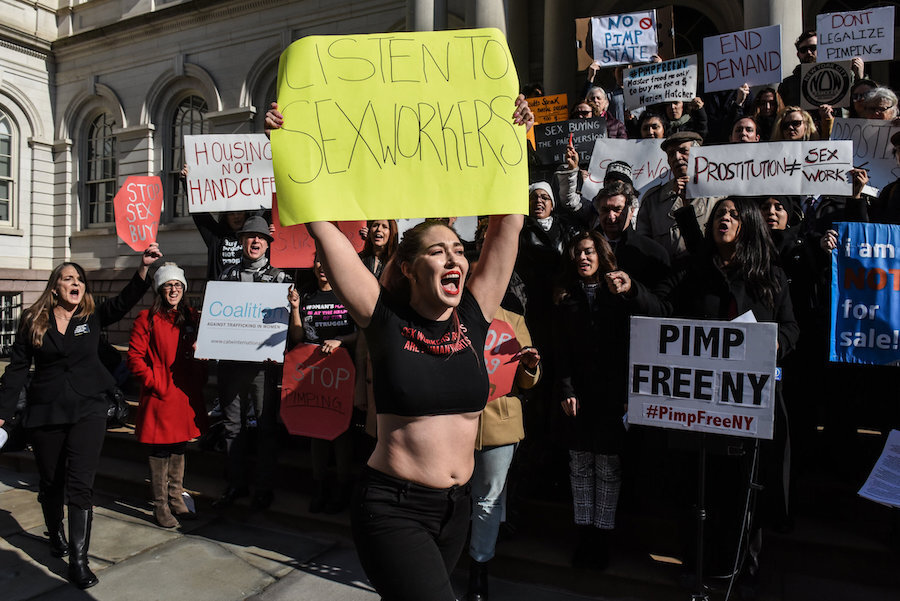Notifications

5 minutes, 28 seconds
-3.4K Views 0 Comments 0 Likes 0 Reviews

Should sex be outlawed? This is an important question to ask in our time because the legalization of prostitution has reduced the role of force in this industry. More women are now entering the sex industry legally, according to Cho, Dreher, and Neumayer. In a legal market, demand for sex is higher than supply, which is why prostitution is growing.
Sex workers shouldn't be outlawed.
Defending the rights of sex workers is a political project shared by queers and sex workers. The two groups want less state regulation of sex practices, gender identities, and expressions. We believe that sexual freedom should be defended across all lines of difference and should not be artificially cabined by gender or sexual identity. That's a political project queer and sex workers should share.
In the US, there are sweeping laws against prostitution. However, despite these laws, tens of thousands of people are arrested, convicted, and fined every year for sex work-related offenses. According to a survey, eighty percent of street-based sex workers in New York reported receiving threats and no help from police.
Sex workers are subverters of patriarchy.
Prostitution was considered an un-feminine profession until feminists began to argue that the practice is not only unfeminine but also a threat to the status of women. In the 1980s, feminist groups like the Suffragette Party and Gloria Steinem supported the movement and rejected the term "sex work." This argument and widespread belief that prostitution is immoral forced feminists to consider their position.
Prohibition of sex work has several problems, however. Although sex workers are often the victims of sexual harassment, it does little to alleviate the discrimination that often comes with it. Prohibition also threatens to put a sex worker behind bars, making it hard for her to earn a living. While the Swedish government is skeptical of the idea of criminalizing sex work, some abolitionists argue that it is a legitimate form of moral disapproval. They point to the need to protect sex workers with a law that protects them and their rights.
Criminalizing sex work encourages trafficking.
Criminalizing sex work has numerous disadvantages and has little to do with saving the workers. It simply perpetuates the social stigma and marginalization that exists for sex workers. These workers are often subjected to widespread human rights violations, including physical and sexual violence, incarceration, harassment by law enforcement, and even lack the fundamental human rights of other members of society. The effects of criminalization on sex workers are far-reaching.
Criminalizing sex work also undermines confidence in health care systems and support systems. Many workers do not disclose their sex work for fear of judgment and discrimination. Moreover, they tend to seek clients in public places, increasing their vulnerability. Furthermore, the criminalization of sex work fosters a hostile relationship between sex workers and law enforcement. This, in turn, encourages trafficking and exploitation.
It is less harmful than prostitution.
Despite the many health benefits of sex, prostitution has long been thought of as a dangerous activity. It involves paying women for sex in exchange for drugs and money. But what is the actual cost of prostitution to the victims? Its social and psychological consequences are far-reaching. It is associated with many risk factors, including childhood sexual and physical abuse and higher rates of comorbid disorders like depression and schizophrenia. Furthermore, it is linked to a host of sociodemographic disadvantages. Therefore, it is a significant challenge for clinicians to understand the human costs and benefits of prostitution.
However, there are still many risks associated with prostitution. The women who engage in prostitution face a high level of violence. These women are regularly subjected to rape, sexual harassment, and domestic violence. Prostitution also undermines traditional ways of life. Ultimately, prostitution is less harmful to women than sex, as it is not a life-threatening act. However, it is essential to note that prostitution is often linked to prostitution tourism, which destroys communities and traditions.

